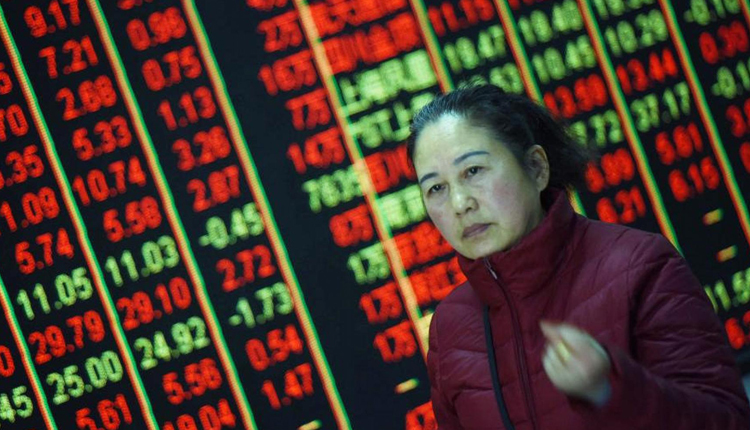Asian markets traded lower Wednesday afternoon after U.S. President Donald Trump said overnight he may delay a trade deal with China till after the 2020 U.S. presidential election.
Shares in Australia led losses among the region’s major markets, with the S&P/ASX 200 declining more than 1.4 percent as shares of major miner BHP plunged beyond 2.5 percent.
The Australian economy grew 1.7 percent on a seasonally adjusted basis year-on-year in the September quarter, data from the Australian Bureau of Statistics showed on Wednesday.
“The economy has continued to grow, however the rate of growth remains well below the long run average,” Bruce Hockman, chief economist for the ABS, said in a statement.
In Japan, the Nikkei 225 fell 1.07 percent in afternoon trade as shares of index heavyweight Fast Retailing plummeted more than 4 percent. The Topix index also declined 0.37 percent.
Mainland Chinese stocks were mixed by the afternoon, with the Shanghai composite down about 0.3 percent while the Shenzhen component was up 0.18 percent. The Shenzhen composite also rose fractionally. Hong Kong’s Hang Seng index declined 1.19 percent.
South Korea’s Kospi traded 0.94 percent lower, as shares of chipmaker SK Hynix fell 1.78 percent — following overnight declines of Nvidia, Micron, and Advanced Micro Devices on Wall Street.
Overall, the MSCI Asia ex-Japan index traded 0.9 percent lower.
Investors have been anticipating a “phase one” trade deal between Washington and Beijing to be inked, ahead of a closely watched date of Decmber 15, when additional tariffs on Chinese exports to the U.S. are set to kick in.
But Trump told reporters on Tuesday: “In some ways, I like the idea of waiting until after the election for the China deal, but they want to make a deal now and we will see whether or not the deal is going to be right.” When asked if he had a deadline for the deal, he added: “I have no deadline, no.”
“Hopefully it’s just negotiating tactics and posturing in the run up to the December 15th deadline and we’ll see some sort of resolution well ahead of … the 12 month timeline,” James Thom, investment director of Asian equities at Aberdeen Standard Investments, told CNBC’s “Squawk Box” on Wednesday.
Even if tariffs do increase come Dec. 15, Thom said: “Who knows how long that will last, there’s always the scope to roll that back.”
Principal Global Investors’ Seema Shah dubbed Trump’s latest comments as a “ploy to regain the upper hand in these negotiations.”
“Just like muscle memory, markets need to learn from experience that there is little to gain from reacting too sharply to Trump’s trade related comments in the run-up to a deal,” Shah, who is chief strategist at Principal Global Investors, said in a note. “In the past 18 months he has clearly demonstrated that this ‘to and fro’ is his preferred form of negotiation.”
Fox News reported that the White House still plans on moving ahead with scheduled Dec. 15 tariffs on Chinese goods notwithstanding recent efforts at a “phase one” trade truce.
Overnight stateside, stocks tumbled amid the trade uncertainty. The Dow Jones Industrial Average fell 280.23 points to close at 27,502.81 while the S&P 500 slipped 0.7 percent to end its trading day at 3,093.20. The Nasdaq Composite closed about 0.6 percent at 8,520.64.
Currencies and oil
The U.S. dollar index, which tracks the greenback against a basket of its peers, was at 97.736 after falling from levels above 97.9 seen earlier.
The Japanese yen traded at 108.54 against the dollar after strengthening from lows around 109.2 yesterday. The Australian dollar changed hands at $0.6826 after slipping from an earlier high of $0.6853.
Oil prices were up in the afternoon of Asian trading hours, with international benchmark Brent crude futures adding 0.79 percent to $61.30 per barrel. U.S. crude futures also gained 0.71 percent to $56.50 per barrel.
Source: CNBC


